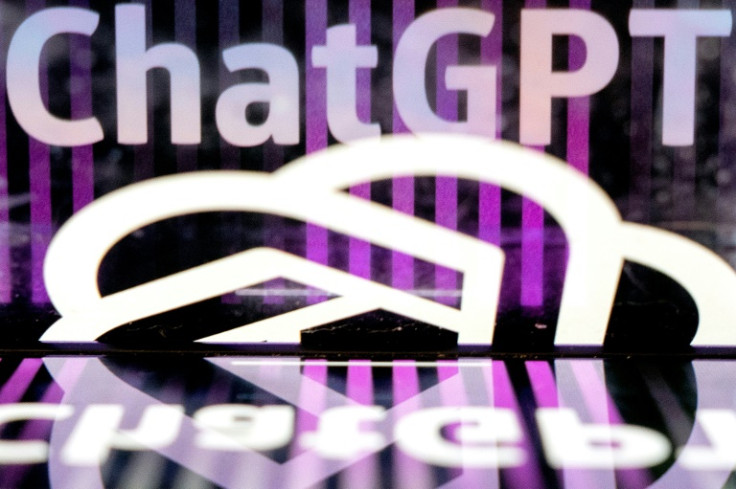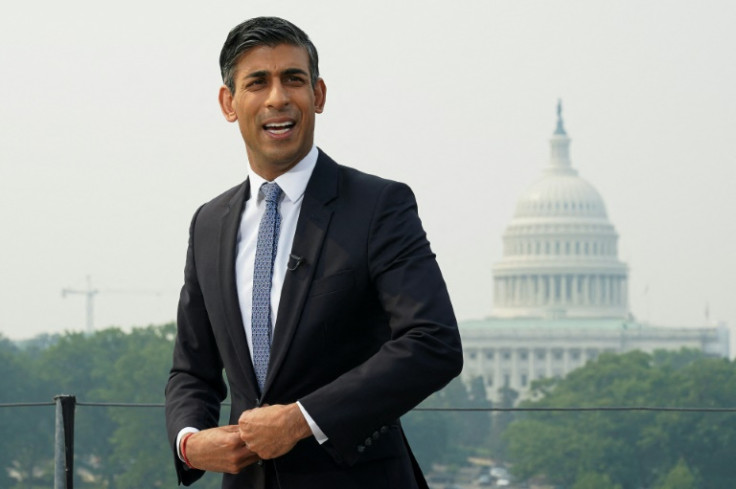AI could be used to provide 'personalised learning' to schoolchildren, Rishi Sunak says

Artificial intelligence (AI) could be used to provide "personalised learning" to children at school, says Rishi Sunak.
The Prime Minister was speaking at London Tech Week, a seven-day festival dubbed as a "global celebration" of tech. This year the event is, unsurprisingly, being dominated by AI.
Representatives from the likes of Microsoft and Google have gathered to discuss the biggest challenges and opportunities presented by the technology.
Sunak, who was also present at the festival today, identified education as a key area that could benefit from developments in AI.
He said it was one of the public services he was most excited about AI's potential to transform, adding the technology could "reduce teachers' workloads" by assisting with lesson planning and marking.
According to Sunak, the potential for artificial intelligence to provide "personalised learning for each individual" is "so powerful" that it is comparable to the impact of having a tutor.
Whilst the Prime Minister chose to address the positive impact AI could have on the education sector, schools, and universities have struggled with the rapid development of the technology, which is becoming increasingly powerful and more accessible to students.
The application of artificial intelligence first rose to mainstream prominence with the development of ChatGPT, released at the end of November last year.
Owned and developed by the AI research and deployment company, OpenAI, ChatGPT is an artificial intelligence chatbot trained to follow instructions and provide a detailed response.
According to the latest available data, ChatGPT currently has over 100 million users, and the website generates 1 billion visitors per month.
The program can make an entire website layout for you, or write an easy-to-understand explanation of dark matter in a few seconds. ChatGPT can also be used for essay writing, relationship advice, and mathematical problem-solving.
And the use of the software has become common amongst students, with many submitting essays or completing homework with the help of AI.
Worries about AI-based plagiarism have pushed a number of institutions to opt for an outright ban of bots like ChatGPT.
Students can now face suspension or expulsion if they are found guilty of plagiarising an assignment using the application.
But enforcing this is difficult because detecting when the technology has been used is so far unreliable.
And new data suggests that the risk of being caught is not acting as an effective deterrent, with many students continuing to use AI to help complete their assessments.
In January, Stanford University's school paper, The Stanford Daily, published the results of "an informal poll" that indicated 17 per cent of 4,497 respondents had used ChatGPT on their final exams.
Most (59.2%) used the chatbot for brainstorming, outlining, and forming ideas, according to the poll. Another 29.1 per cent used it to answer multiple-choice questions. And while 7.3 per cent submitted written material from ChatGPT with edits, 5.5 per cent said they submitted written material from ChatGPT unedited.
At the time of the survey, the school's policies forbade students from using AI tools.

Despite the obvious challenges AI presents to education, Sunak remains optimistic about the use of technology to improve teaching for both students and teachers.
So far, the government has supported a fairly tolerant approach to the use of AI. In March, it released a White Paper outlining its stance on the technology.
It said that rather than enacting legislation it was preparing to require companies to abide by five "principles" when developing AI. Individual regulators would then be left to develop rules and practices.
However, this position appeared to set the UK at odds with other regulatory regimes, including that of the EU, which set out a more centralised approach, classifying certain types of AI as "high risk".
At the G7 Summit last month, Sunak signalled his government may take a more cautious approach to the technology, by leading on "guard rails" to limit the dangers of AI".
The rapid development of the technology has led to concerns over its potential uses.
Last week, Sam Altman, the chief executive of ChatGPT creator OpenAI, warned that tougher regulation of the technology was needed. He told a US Senate committee that AI had the potential to "manipulate" next year's US presidential election.
In the UK, former justice secretary Sir Robert Buckland – now a senior fellow at Harvard conducting a research project into the ethics and justice of AI – said the technology was "the biggest issue of our time".
At London Tech Week, Sunak also spoke about other industries which could be impacted by AI.
He said it could be instrumental in achieving the "holy grail" of public service reform.
"We're already seeing the promise of what AI can do, whether it's new drug discovery; or helping doctors do surgery more accurately and faster, or detect cancers much earlier than they otherwise would," he said.
With this in mind, the Prime Minister expressed his desire for the UK to become a global hub for AI development, and also regulation.
In the past month, he has consulted with the bosses of tech giants including OpenAI and Google's parent, Alphabet, to discuss the sudden explosion of AI adoption across the economy.
During a visit to Washington last week, Sunak got U.S. President Joe Biden's backing for Britain to host an AI summit, which will consider the risks of the technology and discuss how they can be mitigated through internationally coordinated action.
"This is a moment when the contours of the world for the rest of this century are being set," finance minister Jeremy Hunt said at the conference.
He added: "I would like this country to be a force for good in making sure these are set in a way that means that technology can really benefit everyone."
The government subsequently announced Britain would host a global summit in the autumn to debate the regulatory "guardrails" that will mitigate future risks from the tech.
© Copyright IBTimes 2025. All rights reserved.






















